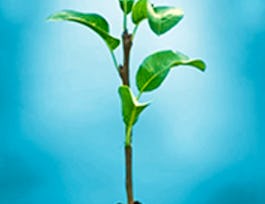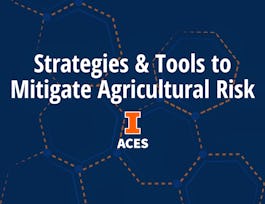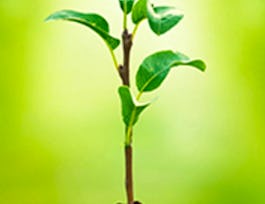In this course, learners will get familiarized with the major components of wetlands, including their formation and hydrology. They will explore the different soil types, the role of nutrient cycling, and the intrinsic connection to the resulting vegetation. The course will cover the types of plants and animals that utilize wetland habitats and their adaptations to this environment. By the end of the course, learners will have a comprehensive understanding of the structure and function of wetlands, as well as the importance of the resulting ecosystem services.



Discovering the Basics of Wetlands

Instructor: Jeffrey W. Matthews, Ph.D.
Sponsored by Coursera Learning Team
Recommended experience
What you'll learn
Major components of wetlands, including their formation and hydrology
Types of plants and animals that utilize wetland habitats and their adaptations to this environment
Structure and function of wetlands and the importance of their ecosystem services
Details to know

Add to your LinkedIn profile
6 assignments
September 2024
See how employees at top companies are mastering in-demand skills


Earn a career certificate
Add this credential to your LinkedIn profile, resume, or CV
Share it on social media and in your performance review

There are 4 modules in this course
In the course orientation, you will become familiar with the course, your classmates, and our learning environment. The orientation will also help you obtain the technical skills required for the course. Then dive into the second part of this module to explore the fascinating world of wetlands from wetland types to formation and hydrology. People have recognized wetlands for a long time, but it’s only more recently that we’ve started to call all these places wetlands.
What's included
10 videos9 readings2 assignments1 discussion prompt
You will explore the foundation of wetlands and their soils in this module. The characteristics of wetlands hydric soils contribute to the unique plant and animal life found in wetland ecosystems. Explore how nutrients and energy cycling occurs in wetlands and tackle global conservation issues.
What's included
11 videos3 readings1 assignment
Wetlands are home to a unique and diverse range of organisms that have adapted to the difficulties of moisture, acidity, low oxygen, and fluctuating temperatures found in these ecosystems. You will explore the intricacies of wetland organisms and how they have adapted to thrive in a tough ecosystem.
What's included
9 videos5 readings1 assignment
Wetland structure is largely impacted by hydrology. This impacts the species present in a particular wetland and the overall structure of the wetland. You will examine the role of hydrology and it's impact on the ecosystem services and functions a wetland may provide. At the conclusion of this module, you will be ready to complete the final assessment for the course and earn your Coursera certificate!
What's included
12 videos7 readings2 assignments
Instructor

Offered by
Why people choose Coursera for their career




Recommended if you're interested in Physical Science and Engineering

Tel Aviv University

University of Illinois Urbana-Champaign

University of Geneva

Tel Aviv University

Open new doors with Coursera Plus
Unlimited access to 10,000+ world-class courses, hands-on projects, and job-ready certificate programs - all included in your subscription
Advance your career with an online degree
Earn a degree from world-class universities - 100% online
Join over 3,400 global companies that choose Coursera for Business
Upskill your employees to excel in the digital economy


